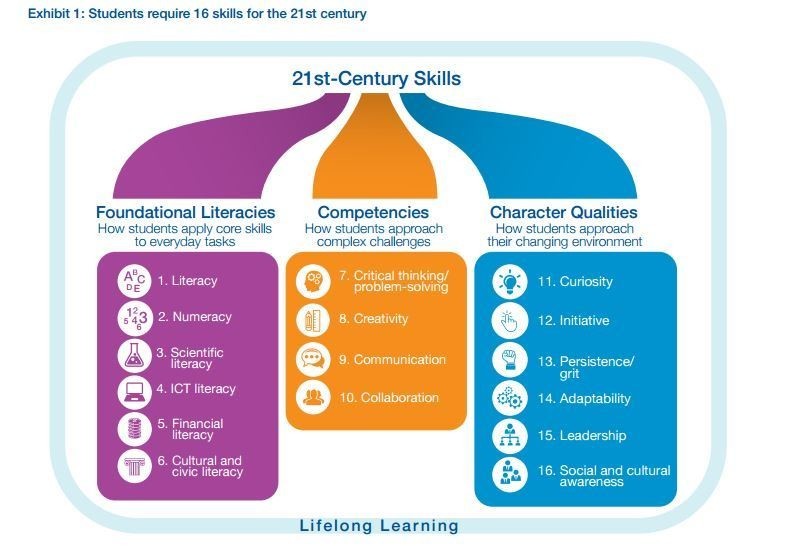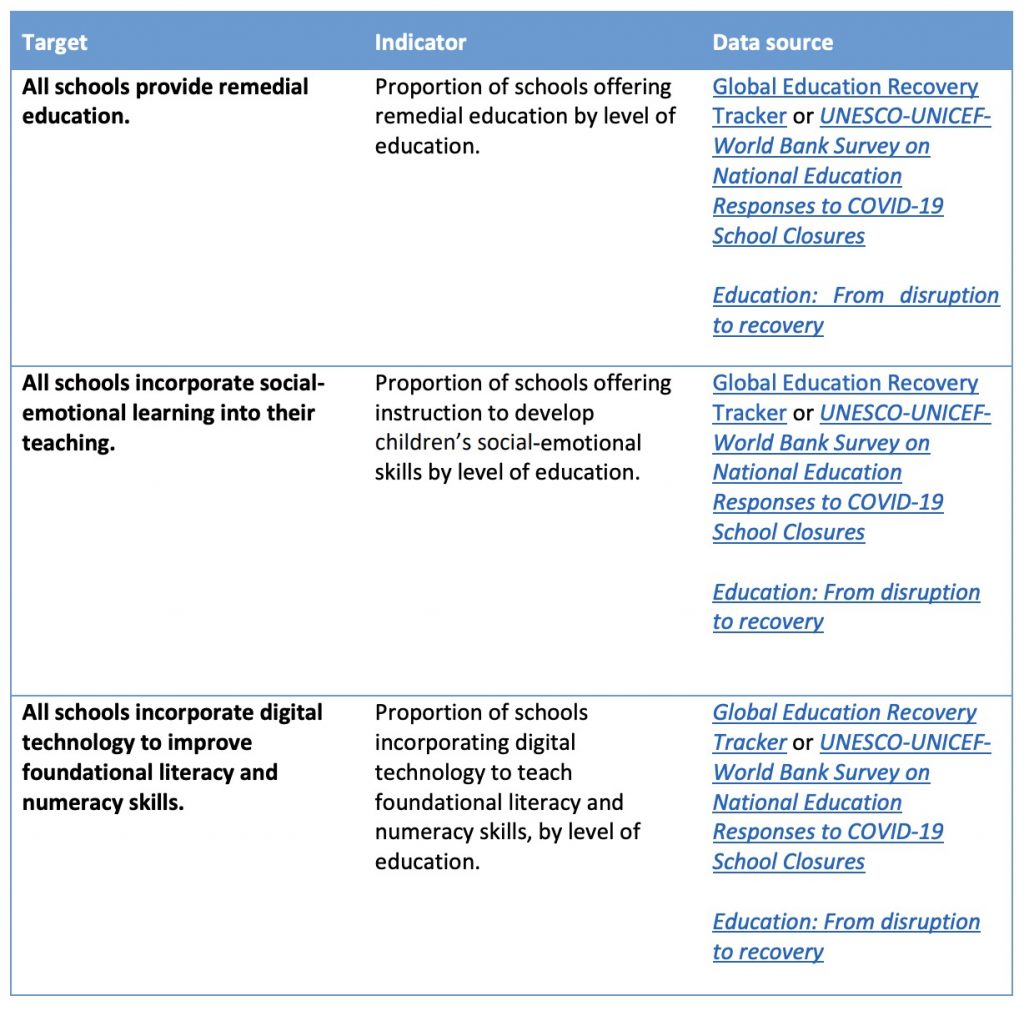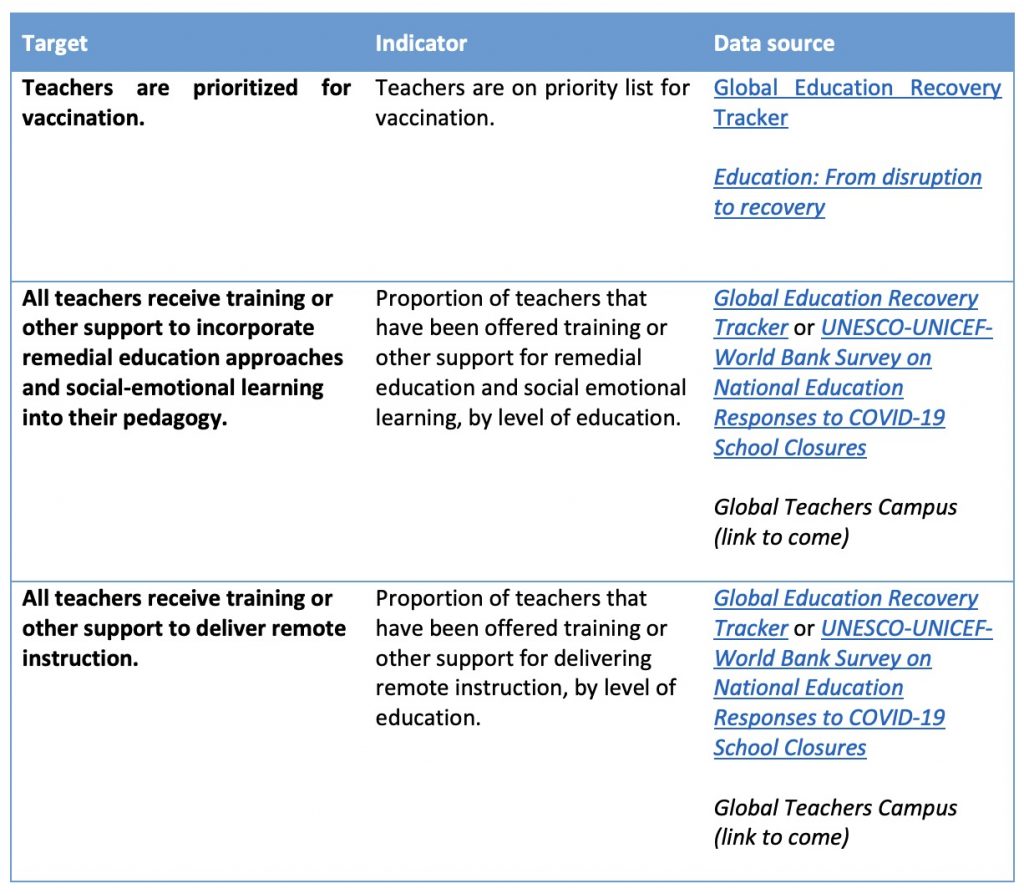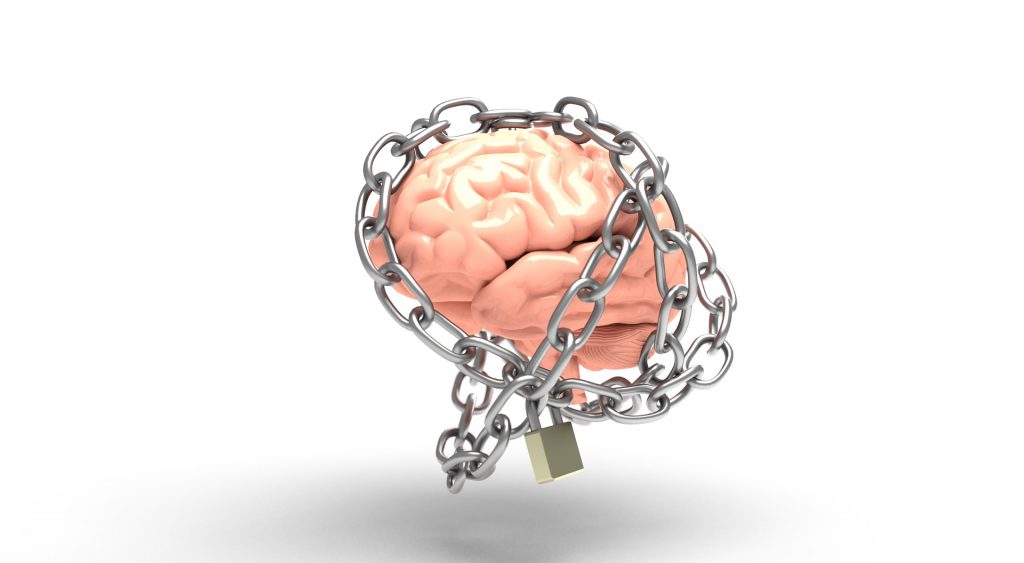Of the 16 skills identified by the World Economic Forum (WEF) as skills needed for “the future of education,” they point out that 12 are social and emotional learning skills (SEL) with “Lifelong Learning” to build their future workforce. Why focus on academics when their goal is to train and overtake one’s mind to be a lifetime obedient slave to their system, through being plugged into an endless array of technology and smart devices that data mine and train AI for the virtual world they wish to create for all of humanity? Much of this has previously been explained and covered extensively in multiple reports by Corey’s Dig, including the 4-part series on the Global Landscape on Vaccine ID Passports. The UN has forecasted that artificial intelligence is set to generate nearly $4 trillion in added value for global markets by 2022.

Image: WEF
Items 6-16 are SEL-based skills, and it is likely that the other two the WEF is calling SEL-based, are items 4 and 6, to account for all 12. Their aim is to integrate technology into all facets of it.
This is a 9-part series on the psychological agenda of obedience training being systematically unleashed on the entire population PreK-Adult in a lifelong learning journey, to move everyone into a one-mind, one belief system, and develop a global citizenship with a digital citizen workforce operating under tyranny for their fourth industrial revolution – and billions are pouring into it, with advancements already in 110 countries. It’s important to read the first 3 parts to understand the overall agenda, as well as the subsequent chapters.
READ:
Part 1: Introduction
Part 2: The Programming
Part 3: Spirituality in Education Programming
OR, download this complete 9-part series in PDF format from The Bookshop.
World Economic Forum’s Vision for Global Lifelong Obedience Training
World Economic Forum’s White Paper on “New Vision for Education: Fostering Social and Emotional Learning through Technology” – March 2016
Prepared in collaboration with The Boston Consulting Group
According to WEF’s research, private investment in Ed-tech increased from $1.5 billion in 2011 to $4.5 billion in 2015. According to the research firm the Learning Counsel, K-12 districts in the U.S. alone spent $35.8 billion in 2020 on hardware, software, curriculum resources, and networks. Grand View Research consulting firm has projected that the Ed-tech market will reach $285.2 billion by 2027, and that it had already reached $76.4 billion in 2019.
Their executive summary points out that “social and emotional skills are critical to the workforce of the future,” and they estimate that 65% of children entering grade school will end up working in jobs that don’t exist today. They go on to state that “SEL will prepare today’s student for this evolving workplace…it can be highly effective to introduce SEL early and embed it in the core curriculum throughout a child’s schooling.” and that technology can be invaluable at enabling SEL. They repeatedly speak of the parents being involved and developing SEL at home as well as in school, and that teachers and staff should all take the “adult SEL” programs. In other words, they are building a complete shift in the consciousness of all children, parents, and teachers to think and behave differently – the way “they” want them to act. Specifics on those behaviors are documented throughout this report.
Page 5: Under the “education technology” section they explain that “technologies such as virtual, augmented and mixed reality; robots; video chats on mobile devices; and virtual tutors allow for a much less passive and more interactive experience” which will play a pivotal role in fostering SEL. They have three technology goals in mind for SEL: 1) Capitalize on what works. 2) Embed SEL into foundational ed-tech products. 3) Expand the realm of the possible by incorporating wearable devices, virtual reality and apps to “master important social and emotional skills.” The WEF did a survey in 5 countries, including China and South Korea, from more than 2,000 educators and parents who all allegedly agreed on the importance of SEL.
Page 6: The report talks about the Perry Preschool Study from the 1960s that “examined the impact of social and emotional skills introduced early in a child’s education.” The study involved one group with a traditional preschool curriculum and the other group incorporated SEL into it. They allegedly tracked these children until age 40 to show those in the SEL group had jobs with higher earnings and committed fewer crimes.
Page 7: According to researchers at Columbia University, in 2015 they determined that SEL programs have a strong return on investment (ROI) over long periods of time, stating that the programs generated an average return of $11 per $1 invested. Here is the full study, which was funded by the NoVo Foundation, a foundation that is controlled by Peter Buffet with the initial donation from his father Warren of 350,000 shares (valued at $1 million) of Berkshire Hathaway.
This is a global agenda – a worldwide plan for their “vision” of a new education system for a future “workforce.” SEL programs are already operating in the U.S., Afghanistan, Pakistan, sub-Saharan Africa, and 20 other “post-conflict zones around the world.” According to the company Emotional ABCs which launched in 2010 in California by Ross Brodie and Cynthia Sikes, their SEL curriculum is being utilized in 110 countries. The Lions Club International Foundation runs Lions Quest, a preschool through secondary school program in 90 countries that focuses on social and emotional skills. The Girl Scouts and Boy Scouts have also been integrating SEL into their programs.
Page 8: “SEL should not be considered a classroom tool alone, it can take place in many effective settings, both inside and outside the classroom.” They are spelling it out and laying it all on the table. Do not dismiss the keywords: Outside the classroom, parents, community, adults, future economy, workplace, embedded, character qualities, identity, digital citizens, adaptability. This is an entire mindset system for everyone, not just children. “This is how you think. This is how you act. This is what you do. Obey.”
They reference Carol Dweck’s work on “growth mindset,” a Professor of Psychology at Stanford University. By coincidence, the back of her book has an endorsement from Bill Gates on it.
Page 9: They point out that the organization “Facing History and Ourselves” (funded by Bill Gates) combines lessons and activities about identity and community with traditional history instruction, and how they have embedded the content and vocabulary of SEL into programs. They give another example by EL Education, who is also funded by Bill Gates.
Pay very close attention to their verbiage in the section on SEL outside the classroom:
“Skills can and should also be taught at home, particularly to younger children. To play their part, parents must have the same social and emotional knowledge and skills that teachers require to make SEL more effective….. Direct interventions teach parents the techniques and skills to foster SEL in their children…..Parents are taught to model, support and encourage specific social skills. Holistic programs help parents become more effective by addressing a range of issues that affect a family. One such program is the Nurse-Family Partnership, which uses home visits by nurses (during pregnancy and infancy) to help parents make decisions about healthcare, early childhood care and learning opportunities.”
My gosh, that doesn’t even need to be unpacked, it’s so blatant.
Pages 10-13: They want a global adoption of SEL. Group programming, interventions, and mind manipulation tactics are flowing on this page.
“In The Incredible Years, discussion groups and practice interventions with other parents are key components of the SEL program. It includes a set of complementary and comprehensive group-training programs for parents, children and teachers, emphasizing for parents training on age-appropriate skills known to promote children’s social competence, emotional regulation and academic skills and to reduce behavioral problems. In this direct parenting intervention, group leaders include social workers, psychologists and physicians.”

The global ed-tech market is projected to hit over $285 billion by 2027. They want to embed SEL into ed-tech products that currently exist such as within online courses, tutoring, common core programs, and multimedia products, and of course a “virtual world” loaded with smart devices and data mining. Web-based Inquiry Science Environment (WISE) and ThinkCERCA are already doing this.
Pages 14-15:
They want to “Expand the realm of the possible”
• Wearable devices (wristbands, smart watches, headsets, smart clothing)
• Leading-edge apps (data collection, emotional skill training and control)
• Virtual reality (EON Reality, Facebook’s Oculus VR, and Google Cardboard for virtual field trips)
• Advanced analytics and machine learning (machines learning how to be like children while assessing how the children should alter their character qualities based on SEL’s competency skills)
• Affective computing (interpret and simulate human emotions)
“These nascent technologies include features that embrace and extend tried-and-true ways of fostering SEL and also offer potential for exciting new learning strategies. Some early offerings, however, hold strong promise for advancing SEL and ushering in a new era of tech-enhanced learning…… The Embrace watch from Empatica is a wearable device that tracks physiological stress and activity. It can be programmed to vibrate when stress reaches a specific level, giving someone time to switch to a more positive response before stress gets out of control. Combining the functionality of the Embrace watch with coaching from parents and teachers may further enhance opportunities to build a child’s social and emotional intelligence.”
Affectiva’s Affdex is used for building the transhumanism agenda through it’s webcam and algorithms that capture and analyze human emotions and reactions. It uses eye-tracking data and assess the differences of facial expressions by nationality, age, gender and other characteristics. Of course it can already differentiate between fear, happiness, surprise and confusion. Researchers at the Carnegie Mellon University’s ArticuLab are developing interactive learning environments to show how artificial intelligence and multimodal social computing could improve cognitive, social and emotional skills.
They’ve had children addicted to technology gaming and apps for years now. In fact, 97% of adolescents play video games in their free time. What child isn’t going to want to try VR and escape the Covid madness the globalists manufactured on this planet? They’ve been disguised by masks for two years, covering up their faces, so what’s the harm in throwing a device over the eyes and plugging into an alternate reality where their minds can be drained and seeded?
Pages 24-25: In this 2016 paper, the WEF stated that the OECD, UNESCO and the World Bank are well positioned to advance the international agenda. In March, 2021 the World Bank, UNESCO, and UNICEF set out on a joint mission called “Recovering Education 2021” focused on getting children back in schools, recovering learning losses, and preparing teachers. By utilizing a new tool developed by Johns Hopkins University, UNICEF, and the World Bank, called “Covid-19 Global Education Recovery Tracker,” to monitor schools planning efforts in over 200 countries, by the end of this year they “aim for countries to report that their schools have incorporated social emotion learning into their teaching”…and…”All teachers should be prepared for remedial education, social emotional learning, and distance learning by the end of this year.”
They expect all schools to step up their technology to prepare children for future digital instruction. They intend to work within countries to engage with governments to prioritize their education financing, and will financially support countries who are on board with this agenda. They are building a national real-time data-warehouse that will collect data and analytics on school re-openings, learning losses, drop-outs, transition from school to work, and certainly other data points they do not list, such as a single digital identity with all records to control all movement, access, spending, healthcare, work, bank accounts, and livelihood.


The OECD’s PISA, which measures education progress in countries on many data points, recently updated their system to measure creative problem-solving to tie into SEL. UNESCO and Microsoft partnered to develop programs that use technology for childhood education. The World Bank created STEP (Skills Toward Employment and Productivity) which is a survey that collects data through employment interviews about social and emotional skills. More on data mining in part 8.
Page 26 displays a tell-all chart in how they intend to promote, advance, manipulate, and embed SEL into everyone’s every day lives, beginning in preschool, all the way up through adulthood and into businesses. The chart depicts how policy-makers, educators, parents, researchers, businesses, tech developers, and investors need to all play a role.
World Economic Forum’s White Paper on “Schools of the Future: Defining New Models of Education for the Fourth Industrial Revolution” – January 2020

Their goal is to build a coalition of stakeholders that build new models, new standards, and new momentum to “transform the future of education” and make it a “lifelong learning” endeavor. This new “Education 4.0” system will assign everyone as a global citizen or digital citizen who have global citizenship in a global community. They propose a global framework with “eight critical shifts in learning content and experiences to redefine quality learning in the new economy.” This is a one-world agenda.
In their own words…
“It is crucial that schools also foster human-centric skills – cooperation, empathy, social awareness and global citizenship – that enable children to shape future societies that are inclusive and equitable.”
As a “global citizen” they want children to promote sustainability and be agents of positive change. They intend to take this to the level of protests and civic engagement through schools. They wish for virtual and augmented reality to transport learners into new environments, as well as incorporate the climate change agenda into curriculums. They also talk about how school enrollment and classroom grouping should be structured with diversity including gender, race, ethnicity, ability, sexual orientation, and language.
Of course, CASEL and “social and emotional learning” is incorporated throughout as well. Under all the illusionary feel-goods, this entire white paper is about diversity, inclusion, a virtual world, and global citizenship with lifelong learning (obedience). It is a psychological agenda to hijack everyone’s consciousness while masterfully spelling out the opposite of their intentions, fooling millions of educators and parents alike.
On page 13, they allege that by 2022 everyone will need an extra 101 days of learning just to keep pace with the changing world of work. Their solution to this is that a new system needs to emerge “whereby people engage in lifelong learning to navigate future job disruptions,” and that this “love for learning” must be instilled in children from a young age. Of course, they recognize that this whole new mindset will require brainwashing an entire global population, but they are all in.
In the paper’s “schools of the future” section, they boast 16 examples of programs carried about by various countries and go into specific detail about the programs.
Under acknowledgements, they thank the “Learning 4.0 Community,” and apparently already have a “Global Future Council on the New Education and Work Agenda” in place (they have “global future councils” on many agendas). They also thank all of the schools and organizations that contributed to the “Schools of the Future Campaign” and thank the “Platform for Shaping the Future of the New Economy and Society Business Partners.”
On December 10, 2021, the World Economic Forum published an article headlined “We need to connect every school to the internet. Here’s how.” Under the guise of the “Covid-19 pandemic” they make their case for needing every school in the world connected to the internet by 2030. They promote digital inclusion, building digital infrastructure, and hybrid models of teaching. In 2019, UNICEF and the International Telecommunications Union (ITU) launched Giga to do just that, and are about to launch a $5 billion connectivity bond to finance it and bring on more investors. Ericsson has partnered with UNICEF to map schools and assess their connectivity in 35 countries by the end of 2023.
If any parent or educator can read these white papers and still be fooled into believing they are trying to create a better future for children, families, and communities, they better look in the mirror long and hard before selling their soul, and that of their children’s, to tyrannical evil that is requesting everyone do so. Hard stop. They want every child plugged in, while they data mine and siphon off every last identifiable character trait, transmitting it to artificial intelligence, and tracking them through blockchain. Much of this was covered in part 4 of Corey’s Digs report on the Global Landscape on Vaccine ID Passports.
Continue to Part 5: U.S. Department of Education & Multiple Agencies Involved
OR, download this complete 9-part series in PDF format from The Bookshop.
This report is sponsored by The Solari Report.
Chapters:
Part 1: Introduction
Part 2: The Programming
Part 3: Spirituality in Education Programming
Part 4: WEF Vision for Global Education System
Part 5: U.S. Department of Education & Multiple Agencies Involved
Part 6: Private Sector Funding
Part 7: Legislation and Billions in State & Federal Funding
Part 8: Surveillance, Data Mining and Social Score for All
Part 9: Timeline, 580+ Players, and Conclusion
